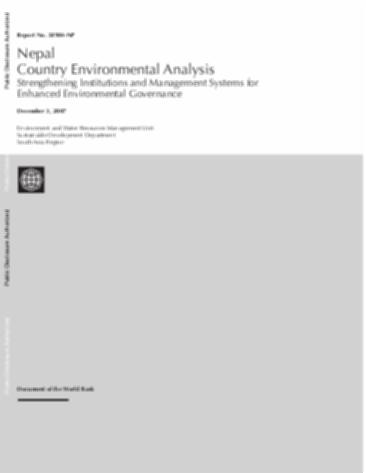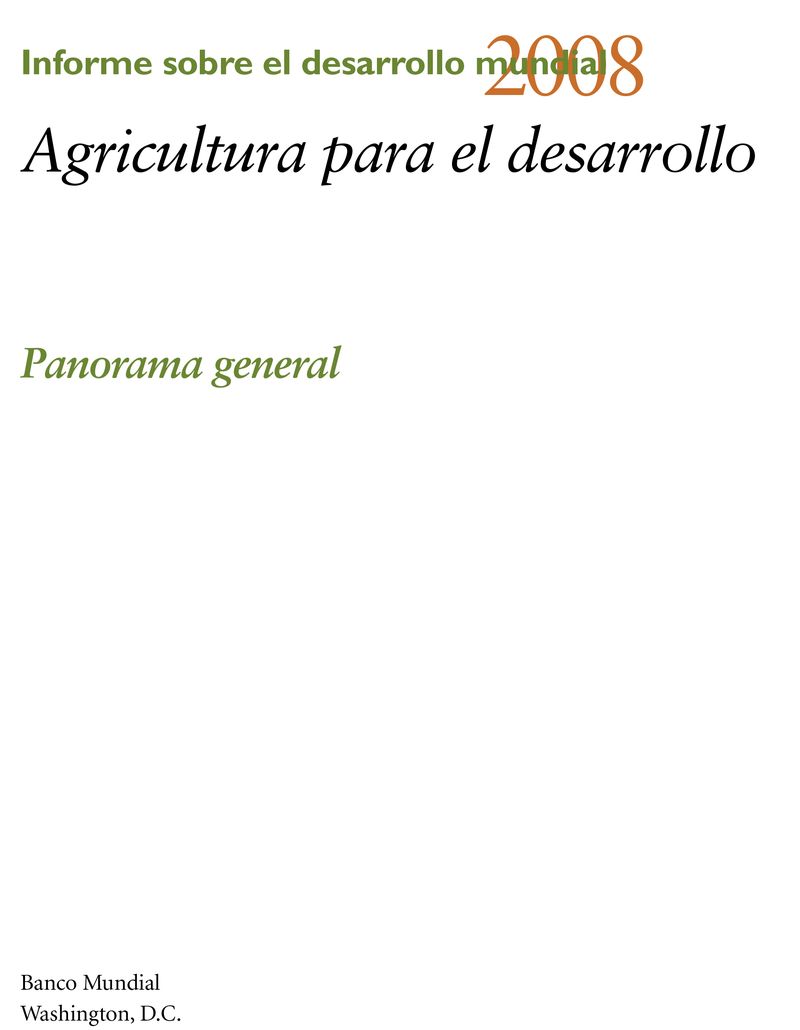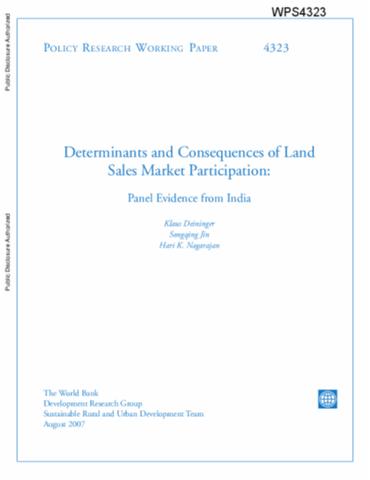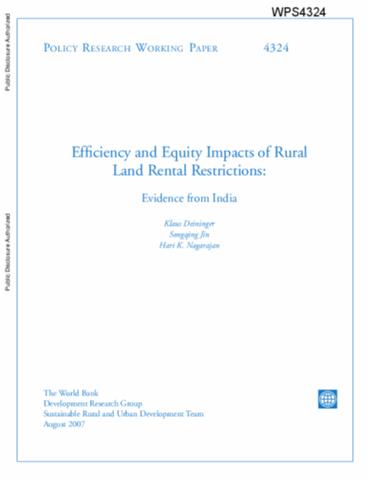The World Bank is a vital source of financial and technical assistance to developing countries around the world. We are not a bank in the ordinary sense but a unique partnership to reduce poverty and support development. The World Bank Group has two ambitious goals: End extreme poverty within a generation and boost shared prosperity.
- To end extreme poverty, the Bank's goal is to decrease the percentage of people living on less than $1.25 a day to no more than 3% by 2030.
- To promote shared prosperity, the goal is to promote income growth of the bottom 40% of the population in each country.
The World Bank Group comprises five institutions managed by their member countries.
The World Bank Group and Land: Working to protect the rights of existing land users and to help secure benefits for smallholder farmers
The World Bank (IBRD and IDA) interacts primarily with governments to increase agricultural productivity, strengthen land tenure policies and improve land governance. More than 90% of the World Bank’s agriculture portfolio focuses on the productivity and access to markets by small holder farmers. Ten percent of our projects focus on the governance of land tenure.
Similarly, investments by the International Finance Corporation (IFC), the World Bank Group’s private sector arm, including those in larger scale enterprises, overwhelmingly support smallholder farmers through improved access to finance, inputs and markets, and as direct suppliers. IFC invests in environmentally and socially sustainable private enterprises in all parts of the value chain (inputs such as irrigation and fertilizers, primary production, processing, transport and storage, traders, and risk management facilities including weather/crop insurance, warehouse financing, etc
For more information, visit the World Bank Group and land and food security (https://www.worldbank.org/en/topic/agriculture/brief/land-and-food-security1
Resources
Displaying 4796 - 4800 of 4906Nepal - Country Environmental Analysis : Strengthening Institutions and Management Systems for Enhanced Environmental Governance
The main objective of the Country Environmental Analysis (CEA) in Nepal is to identify opportunities for enhancing the overall performance of select environmental management systems through improvements in the effectiveness of institutions, policies, and processes.
Agricultura para el Desarrollo 2008
Este documento es un summary del Informe sobre el desarrollo mundial 2008, realizado por el personal del Banco Internacional de Reconstrucción y Fomento/Banco Mundial. La agricultura es un instrumento de desarrollo fundamental para alcanzar el objetivo de desarrollo del milenio de reducir la proporción de personas que padecen hambre y viven en la extrema pobreza a la mitad para 2015. Éste es el mensaje general del Informe sobre el desarrollo mundial de este año, la 30a entrega de esta publicación.
Determinants and Consequences of Land Sales Market Participation : Panel Evidence from India
Although opinions on impacts of land market transfers are sharply divided, few studies explore the welfare and productivity effects of land markets on a larger scale. This paper uses a large Indian panel spanning almost 20 years, together with a climatic shock (rainfall) indicator, to assess the productivity and equity effects of market-mediated land transfers (sale and purchase) compared with non-market ones (inheritance). The analysis shows that frequent shocks increase land market activity, an effect that is mitigated by the presence of safety nets and banks.
Efficiency and Equity Impacts of Rural Land Rental Restrictions : Evidence from India
Recognition of the potentially deleterious implications of inequality in opportunity originating in a skewed asset distribution has spawned considerable interest in land reforms. However, little attention has been devoted to fact that, in the longer term, the measures used to implement land reforms could negatively affect productivity. Use of state level data on rental restrictions, together with a nationally representative survey from India, suggests that, contrary to original intentions, rental restrictions negatively affect productivity and equity.
Land Acquisition in Afghanistan : A Report
The purpose of this report is to review
and assess Afghanistan's legal framework regulating
social safeguards (national and local laws, regulations,
procedures and policies) with special reference to the law
and practice of compulsory land acquisition, or
expropriation. The overall objective of the report is to
consider how Afghanistan's legal framework would
address social safeguard issues in upcoming World Bank










